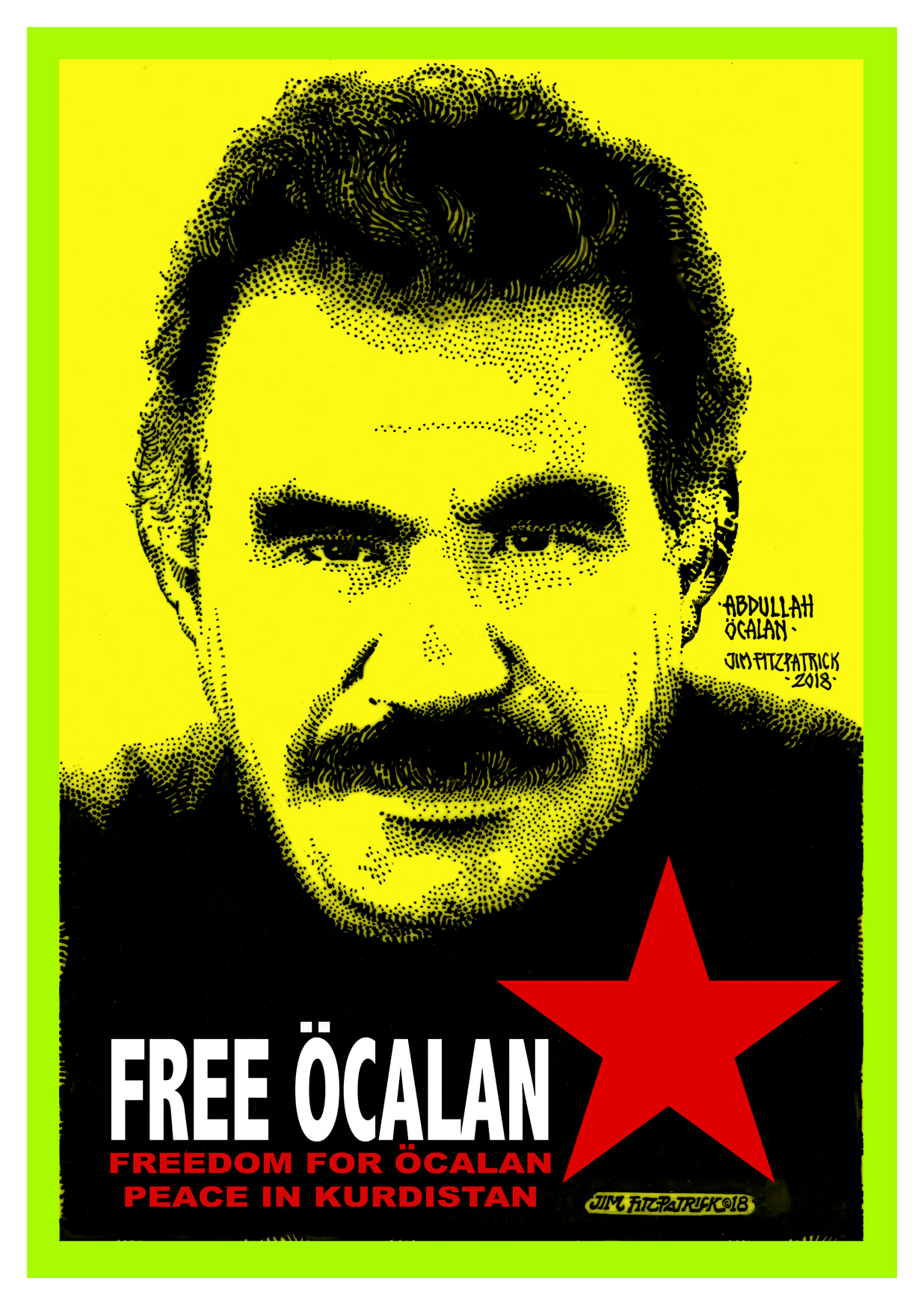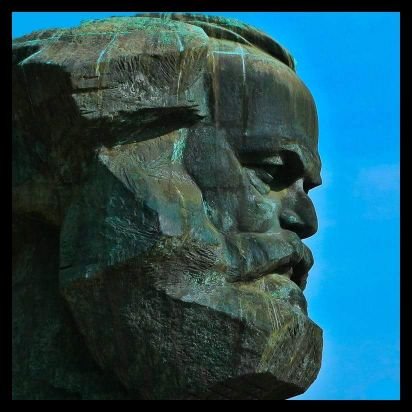Archivo
«Marx e la fondazione macro-monetaria della microeconomia»: Riccardo Bellofiore
 In molti dei suoi scritti recenti, Fred Moseley ha sottolineato che la teoria di Marx deve essere interpretata secondo un approccio tanto «macro» quanto «monetario», e che su di esso poggia la determinazione dei prezzi di produzione[1]. Moseley riconosce che anche altri interpreti hanno proposto una lettura «macro-monetaria» della teoria marxiana. Piuttosto che aprire un dialogo con queste altre prospettive interpretative, Moseley si è accontentato di sviluppare la propria. Un confronto aperto e una critica rigorosa sono perciò opportuni per individuare similitudini e differenze tra le varie posizioni.
In molti dei suoi scritti recenti, Fred Moseley ha sottolineato che la teoria di Marx deve essere interpretata secondo un approccio tanto «macro» quanto «monetario», e che su di esso poggia la determinazione dei prezzi di produzione[1]. Moseley riconosce che anche altri interpreti hanno proposto una lettura «macro-monetaria» della teoria marxiana. Piuttosto che aprire un dialogo con queste altre prospettive interpretative, Moseley si è accontentato di sviluppare la propria. Un confronto aperto e una critica rigorosa sono perciò opportuni per individuare similitudini e differenze tra le varie posizioni.
Non posso che essere d’accordo con l’idea secondo cui l’originalità di Marx risiederebbe in quella che ho altrove definito come una vera e propria «teoria monetaria del valore-lavoro» e nella sua prospettiva «macro-sociale»: due elementi che caratterizzano la mia lettura di questo autore fin dagli anni ottanta. Tali affermazioni devono essere tuttavia vagliate attentamente, poiché non è per niente ovvio che il primo libro del Capitale di Marx possa essere letto alla maniera di Moseley, sia per quanto riguarda il versante «macro» che per quel che riguarda il versante «monetario». Una prima ragione sta nel fatto che, con poche eccezioni, il collegamento fondamentale tra il denaro e il valore ha soltanto recentemente catalizzato l’attenzione degli studiosi di Marx, ed è ancora oggi uno dei punti più controversi di tutta l’economia marxiana. Un’altra ragione sta nel fatto che la distinzione tra macro e micro è un risultato della rivoluzione keynesiana, essa stessa alquanto controversa nel suo significato. L’applicazione di questi aggettivi a Marx deve essere chiarita fin nei minimi dettagli.
«La Determinación de la “Expresión Monetaria del Tiempo de Trabajo” (“MELT”) en el caso del Dinero no mercancía»: Fred Moseley
 Abstract
Abstract
This paper suggests a way to determine the “monetary expression of labor” (the “MELT”) in today’s regime of inconvertible credit money, a way that is consistent with Marx’s general theory of money and is quantitatively the same as Marx’s determination of the MELT in the case of the inconvertible fiat money of his time. In order to explain this method of determination of the MELT in the case of modern inconvertible credit money, the paper first reviews Marx’s determination of the MELT in the case of commodity money and in the case of the inconvertible fiat money of his time. The final section of the paper discusses the similarities and the differences between my interpretation and Saros’s (2007) interpretation of the MELT in the case of inconvertible fiat money.
JEL classification: B51, E11
Keywords: commodity money, fiat money, credit money, monetary expression of labor time
Resumen
Este trabajo sugiera una manera para determinar la “expresión monetaria del tiempo de trabajo” (el “MELT” por sus siglas en inglés, monetary expression of labor time) en el régimen actual de dinero crédito inconvertible, una manera que es consistente con la teoría general del dinero de Marx y que es cuantitativamente igual a la determinación de Marx del MELT para el caso de dinero fiduciario inconvertible de su tiempo. Para explicar este método de determinación del MELT en el caso de dinero crédito inconvertible moderno el trabajo primero revisa la determinación del MELT que hace Marx en el caso del dinero mercancía y en el caso del dinero fiduciario inconvertible de su tiempo. La sección final del trabajo discute las similitudes y diferencias entre mi interpretación y la interpretación de Saros (2007) del MELT en el caso de dinero fiduciario inconvertible
Clasificación JEL: B51, E11
«The Trade Deficit: Beyond the Myth of Currency Manipulation»: Anwar Shaikh
 The US has run a massive trade deficit for over 30 years. In recent times, there has been a growing chorus of commentators who seek to place the blame on our trading partners, most notably China, just as in an earlier time others had targeted Japan and Germany. It is said that the problem stems not from our reduced international competitiveness, but rather from the manipulation of exchange rates by our more successful trading partners.
The US has run a massive trade deficit for over 30 years. In recent times, there has been a growing chorus of commentators who seek to place the blame on our trading partners, most notably China, just as in an earlier time others had targeted Japan and Germany. It is said that the problem stems not from our reduced international competitiveness, but rather from the manipulation of exchange rates by our more successful trading partners.
This claim is not based on any direct evidence, but rather on an inference derived from standard international trade theory, which predicts that free trade will automatically lead to balanced trade. From this particular theoretical perspective, our large and persistent large trade deficit must be rooted in some obstacles to free trade. The large surpluses of our trading partners such as China then make them natural candidates for our opprobrium. Of course, if the standard theory is incorrect, this line of inference collapses. I wish to argue that the standard theory is wrong, on both theoretical and empirical grounds, and that free trade does not automatically eliminate trade imbalances. On the contrary, free trade reflects international competitiveness, and persistent trade deficits are symptoms of persistent competitive weakness.
«Examen de la crítica de C. Benetti y J. Cartelier a la teoría del dinero de Marx»: Abelardo Mariña Flores y Mario L. Robles Báez
 En la parte tercera de Merchands, salariat et capitalistes (1980), Benetti y Cartelier realizan un examen crítico a la consistencia lógica de algunas de las proposiciones teóricas inherentes a la teoría del capital de Marx en El Capital. Algunas de estas críticas son desarrolladas y reproducidas en trabajos posteriores, por separado, por un lado, en el capítulo v del libro de Benetti Moneda y teoria del valor (1990), y por otro lado, en el articulo de Cartelier «Marx’s theory of value, exchange and surplus value: a suggested reformulation» (1991). La presentación de las formas del valor de Marx es uno de los problemas críticamente analizados por ellos; particularrnente, ellos intentan mostrar que Marx no tuvo éxito en la derivación del concepto de dinero a partir del de la mercancía y, por lo tanto, de las relaciones de intercarmbio mercantil. Una irnportante crítica a los argumentos que presentan Benetti y Cartelier en Merchands, salariat et capitalistes a este respecto se encuentra en Fausto (1983); Williams (1992) objeta algunos de los argurnentos desarrollados en el artículo de Cartelier; y, en su respuesta al texto de Benetti, Robles (1992 y 1997) desarrolla algunos de los argumentos críticos de Fausto relacionados con la interpretación de Benetti y Cartelier respecto a la presentación de la génesis de la forma-dinero del valor de Marx.
En la parte tercera de Merchands, salariat et capitalistes (1980), Benetti y Cartelier realizan un examen crítico a la consistencia lógica de algunas de las proposiciones teóricas inherentes a la teoría del capital de Marx en El Capital. Algunas de estas críticas son desarrolladas y reproducidas en trabajos posteriores, por separado, por un lado, en el capítulo v del libro de Benetti Moneda y teoria del valor (1990), y por otro lado, en el articulo de Cartelier «Marx’s theory of value, exchange and surplus value: a suggested reformulation» (1991). La presentación de las formas del valor de Marx es uno de los problemas críticamente analizados por ellos; particularrnente, ellos intentan mostrar que Marx no tuvo éxito en la derivación del concepto de dinero a partir del de la mercancía y, por lo tanto, de las relaciones de intercarmbio mercantil. Una irnportante crítica a los argumentos que presentan Benetti y Cartelier en Merchands, salariat et capitalistes a este respecto se encuentra en Fausto (1983); Williams (1992) objeta algunos de los argurnentos desarrollados en el artículo de Cartelier; y, en su respuesta al texto de Benetti, Robles (1992 y 1997) desarrolla algunos de los argumentos críticos de Fausto relacionados con la interpretación de Benetti y Cartelier respecto a la presentación de la génesis de la forma-dinero del valor de Marx.
«Marx e Hegel. Contributi a una rilettura»: Roberto Fineschi
 Indice
Indice
«The Story of a Great Discovery»: Vitaly Vygodsky
 Written: 1965
Written: 1965
First Published: Istorii a odnogo velikogo otkrytii a K Marksa: k sozdanii u «Kapitala», Moskva, Mysl, 1965
Source: The Story of a Great Discovery – How Karl Marx wrote «Capital«, Verlag Die Wirtschaft , 1973
Translated: Christopher Salt
Transcription/Markup: Steve Palmer
Copyleft: Internet Archive (marxists.org) 2009 . Creative Commons Non-Commercial license
Instead of an Introduction
How Capital was created
Is it necessary to know the. background to Capital? The main stages. Why is the period from 1850 to 1863 so interesting ? Marx’s creative laboratory.
Lógica, infinitud y “Los límites del Capital”: Ángelo Narváez León
 La filosofía hegeliana del derecho no es, contrariamente a lo establecido por la oficialidad de la opinión filosófica, un proyecto positivo de construcción de un sistema jurídico-administrativo-económico para tal o cual región occidental de la Europa continental. No pretendemos extendernos sobre una cuestión planimétricamente geopolítica en torno al “objeto” nacional que fuese el contenido externo, de una lógica siempre externa en un caso tal: si bien ha tenido un profundo y extendido asidero en la hermenéutica hegeliana, poco nos importa si este contenido formal de la filosofía del derecho tiene por nombre “Prusia”, “Austria”, “Inglaterra”, o cualquier otro “Estado” particular. Esta discusión, que se sostiene entre el constante vaivén de los prismas hermenéuticos y filológicos, llena de contenido la formación analítica de un discurso interpretativo y se reviste de un carácter eminentemente fundamental para la comprensión de una proyección contextual de una analítica ejecutiva. Pero, esta fundamentalidad es ella misma la carencia y limitación de una ontología de la totalidad concreta. La radicalidad de la filosofía hegeliana del derecho no estriba en la constatación de una relación que podríamos malversadamente llamar “lógica” entre un contenido nacional y una dialéctica puramente abstracta como forma de conocimiento. Si depositamos la mirada en la exclusividad publicitaria de las Grundlinien der Philosophie des Rechts de 1821, caeremos estrepitosamente en las condiciones formales de la relación dialéctica entre la forma del conocer y la cuestión nacional.
La filosofía hegeliana del derecho no es, contrariamente a lo establecido por la oficialidad de la opinión filosófica, un proyecto positivo de construcción de un sistema jurídico-administrativo-económico para tal o cual región occidental de la Europa continental. No pretendemos extendernos sobre una cuestión planimétricamente geopolítica en torno al “objeto” nacional que fuese el contenido externo, de una lógica siempre externa en un caso tal: si bien ha tenido un profundo y extendido asidero en la hermenéutica hegeliana, poco nos importa si este contenido formal de la filosofía del derecho tiene por nombre “Prusia”, “Austria”, “Inglaterra”, o cualquier otro “Estado” particular. Esta discusión, que se sostiene entre el constante vaivén de los prismas hermenéuticos y filológicos, llena de contenido la formación analítica de un discurso interpretativo y se reviste de un carácter eminentemente fundamental para la comprensión de una proyección contextual de una analítica ejecutiva. Pero, esta fundamentalidad es ella misma la carencia y limitación de una ontología de la totalidad concreta. La radicalidad de la filosofía hegeliana del derecho no estriba en la constatación de una relación que podríamos malversadamente llamar “lógica” entre un contenido nacional y una dialéctica puramente abstracta como forma de conocimiento. Si depositamos la mirada en la exclusividad publicitaria de las Grundlinien der Philosophie des Rechts de 1821, caeremos estrepitosamente en las condiciones formales de la relación dialéctica entre la forma del conocer y la cuestión nacional.
«In Marx’s Laboratory. Critical Interpretations of the Grundrisse» Edited by Riccardo Bellofiore, Guido Starosta and Peter D. Thomas
 Edited by Riccardo Bellofiore, University of Bergamo, Italy, Guido Starosta, National University of Quilmes, Argentina, and Peter D. Thomas, Brunel University, London In Marx’s Laboratory. Critical Interpretations of the Grundrisse provides a critical analysis of the Grundrisse as a crucial stage in the development of Marx’s critique of political economy. Stressing both the achievements and limitations of this much-debated text, and drawing upon recent philological advances, this volume attempts to re-read Marx’s 1857-58 manuscripts against the background of Capital, as a ‘laboratory’ in which Marx first began to clarify central elements of his mature problematic. With chapters by an international range of authors from different traditions ofinterpretation, including the International Symposium on Marxian Theory, this volume provides an in-depth analysis of key themes and concepts in the Grundrisse, such as method, dialectics and abstraction; abstract labour, value, money and capital; technology, the ‘general intellect’ and revolutionary subjectivity, surplus-value, competition, crisis; and society, gender, ecology and pre-capitalist forms.
Edited by Riccardo Bellofiore, University of Bergamo, Italy, Guido Starosta, National University of Quilmes, Argentina, and Peter D. Thomas, Brunel University, London In Marx’s Laboratory. Critical Interpretations of the Grundrisse provides a critical analysis of the Grundrisse as a crucial stage in the development of Marx’s critique of political economy. Stressing both the achievements and limitations of this much-debated text, and drawing upon recent philological advances, this volume attempts to re-read Marx’s 1857-58 manuscripts against the background of Capital, as a ‘laboratory’ in which Marx first began to clarify central elements of his mature problematic. With chapters by an international range of authors from different traditions ofinterpretation, including the International Symposium on Marxian Theory, this volume provides an in-depth analysis of key themes and concepts in the Grundrisse, such as method, dialectics and abstraction; abstract labour, value, money and capital; technology, the ‘general intellect’ and revolutionary subjectivity, surplus-value, competition, crisis; and society, gender, ecology and pre-capitalist forms.
“16 Tesis de Economía Política. Tesis III″: Enrique Dussel
 «El ciclo equivalencial: valor de cambio, dinero y mercado«: tercera conferencia de Enrique Dussel sobre la crítica de la economía política de Marx de su curso ” 16 Tesis de Economía Política”
«El ciclo equivalencial: valor de cambio, dinero y mercado«: tercera conferencia de Enrique Dussel sobre la crítica de la economía política de Marx de su curso ” 16 Tesis de Economía Política”
«Finance and the realization problem in Rosa Luxemburg: a ‘circuitist’ reappraisal»: Riccardo Bellfiore and Marco Passarella
 Article showing that Rosa Luxemburg’s analysis of capitalist accumulation is framed within a ‘circuitist’ macroeconomic reading of capitalism as a monetary production economy
Article showing that Rosa Luxemburg’s analysis of capitalist accumulation is framed within a ‘circuitist’ macroeconomic reading of capitalism as a monetary production economy
Introduction
The aim of this chapter is to show that Rosa Luxemburg’s analysis of capitalist accumulation is framed within a ‘circuitist’ macroeconomic reading of capitalism as a monetary production economy. The strengths and limits of her approach are to be found elsewhere than suggested by usual criticisms, especially those advocated by Marxist authors. Rosa Luxemburg cannot be reduced to the uncertain theoretical status of an ‘under-consumptionist’. On the contrary, she presents a clear (although incomplete) picture of the macro-monetary and sequential working of the capitalist process.
This chapter is organized as follows. The next section examines Luxemburg’s comments on how the enlarged reproduction scheme is introduced in volume II of Marx’s Capital. The third, fourth, and fifth sections summarize, first, the orthodox attack by Bukharin, and then the more sympathetic interpretations provided by Michał Kalecki and Joan Robinson. The sixth and seventh sections emphasize the affinities and differences of Luxemburg’s circuitist perspective with the contemporary theory of the monetary circuit. The eighth section concentrates on the problem of the monetization of profits and interests. Some concluding remarks are provided in the last section.
«Marx y Polanyi. La posibilidad de un diálogo»: Carlos Fernández Liria y Luis Alegre Zahonero
 Resumen
Resumen
Este artículo pretende sentar las bases para un posible diálogo entre cierta lectura de Marx y la obra de Karl Polanyi. Para ello es preciso, en primer lugar, aislar los motivos que llevaron a Polanyi a criticar duramente el enfoque marxista. En segundo lugar, comprobar si otra posible lectura de Marx podría escapar a esa crítica, introduciendo el debate en una problemática más interesante. Con ello pretendemos contrarrestar la tendencia a insertar la obra de Polanyi en el seno de un nuevo pensamiento reaccionario.
Palabras clave: Marx, Polanyi, mercado, hombre, capitalismo, ilustración, antropología
1. Polanyi: “El hombre es el mismo a lo largo de la historia”
Marx y Polanyi no son incompatibles. Al contrario, en un cierto sentido se iluminan mutuamente. Bien es verdad que, en un primer plano, destacan sobre todo los desencuentros. La gran transformación de Karl Polanyi contiene, sin duda, una crítica muy poderosa a Marx, al que acusa de economicismo, aunque no en el sentido habitual. Por su parte, el universo del marxismo, en general muy propenso al historicismo, tampoco podía sentirse muy interesado por una obra en la que podía leerse que “El hombre es el mismo a lo largo de la historia” (Polanyi, 1989: 422)2.
«El fetichismo de la mercancía»: Reinaldo Carcanholo
![]() “El carácter fetichista de la mercancía y su secreto”, una sección del primer volumen del “El Capital” (Carlos Marx, 1867) presentado por el economista brasileño Reinaldo Carcanholo.
“El carácter fetichista de la mercancía y su secreto”, una sección del primer volumen del “El Capital” (Carlos Marx, 1867) presentado por el economista brasileño Reinaldo Carcanholo.
«Beyond the Market: Radical Alternatives to Market Socialism»: David McNally
 DAVID MCNALLY is Professor of Political Science at York University, Toronto. He is the author of five previous books: Political Economy and the Rise of Capitalism (1988); Against the Market: Political Economy Market Socialism and the Marxist Critique (1993); Bodies of Meaning: Studies on Language, Labor and Liberation (2001); Another World is Possible: Globalization and Anti-Capitalism (2002; second revised edition 2006); and Monsters of the Market: Zombies, Vampires and Global Capitalism (forthcoming 2010). His articles have appeared in many journals, including Historical Materialism, Capital and Class, History of Political Thought, New Politics, Studies in Political Economy, and Review of Radical Political Economics. His book on the economic crisis, Global Slump: The Economics and Politics of Crisis and Resistance, will be published by PM Press in November. David McNally is also a long-time activist in socialist, anti-poverty and migrant justice movements.
DAVID MCNALLY is Professor of Political Science at York University, Toronto. He is the author of five previous books: Political Economy and the Rise of Capitalism (1988); Against the Market: Political Economy Market Socialism and the Marxist Critique (1993); Bodies of Meaning: Studies on Language, Labor and Liberation (2001); Another World is Possible: Globalization and Anti-Capitalism (2002; second revised edition 2006); and Monsters of the Market: Zombies, Vampires and Global Capitalism (forthcoming 2010). His articles have appeared in many journals, including Historical Materialism, Capital and Class, History of Political Thought, New Politics, Studies in Political Economy, and Review of Radical Political Economics. His book on the economic crisis, Global Slump: The Economics and Politics of Crisis and Resistance, will be published by PM Press in November. David McNally is also a long-time activist in socialist, anti-poverty and migrant justice movements.
«Marx’s Critique of (Ricardian) Political Economy, the Quantity Theory of Money and Credit Money»: John Milios
 Abstract
Abstract
The Marxist concept of value is very frequently equated, whether explicitly or merely tacitly, with the corresponding Ricardian concept of “labour expended”. This paper argues that unlike the Ricardian theory of value, the Marxist theory of value is a monetary theory. In the Marxist system, the value of a commodity is expressed not through itself but through its distorted forms of appearance, in prices. Moreover, it cannot be defined in isolation, but exclusively in relation to all other commodities, in a process of exchange. In this relation of exchange value is materialised in money. The essential feature of the “market economy” (of capitalism) is thus not simply commodity exchange but monetary circulation and money. Commodity exchange presupposes thus the (positive) prices of all commodities involved. In other words, prices are not determined after the establishment of a non-monetary equilibrium system of barter between “production sectors”, like the Sraffian “linear production systems”. On the contrary, barter is for Marx non-existing, as all exchange transactions are made up of separate acts of exchange of commodities with money.
«Masters of Money: J. M. Keynes, F. von Hayek and K. Marx»
 La televisión de la BBC de Londres y The Open University han preparado un documental en tres partes que interpretaa la situación actual de la economía mundial con las aportaciones teóricas de Keynes, Hayek y Marx. Cada episodio de la serie titulado «Money Masters» (Masters of Money) se dedicó a uno de estos tres grandes pensadores del capitalismo mundial. Mira el video completo aquí en su totalidad.
La televisión de la BBC de Londres y The Open University han preparado un documental en tres partes que interpretaa la situación actual de la economía mundial con las aportaciones teóricas de Keynes, Hayek y Marx. Cada episodio de la serie titulado «Money Masters» (Masters of Money) se dedicó a uno de estos tres grandes pensadores del capitalismo mundial. Mira el video completo aquí en su totalidad.


























